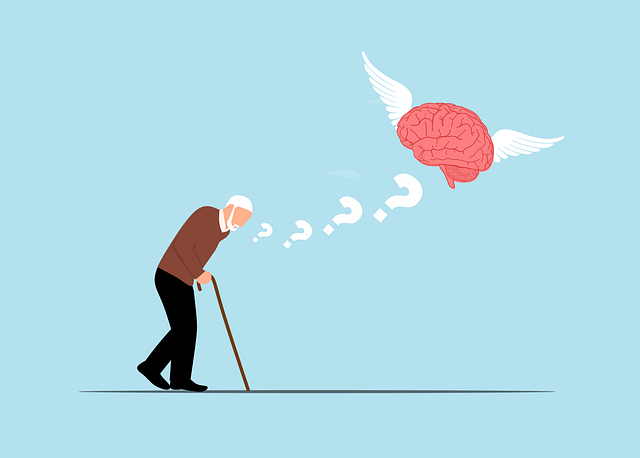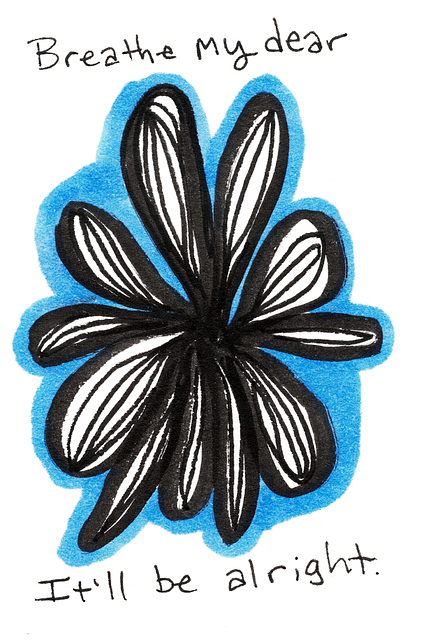Therapy for Adults Abuse Survivors focuses on mood regulation through specialized approaches. Techniques like mental wellness journaling, CBT, mindfulness, and structured self-care routines help survivors understand and manage their emotions. CBT enhances emotional intelligence and challenges negative thought patterns, while mindfulness practices create present-moment awareness to detach from past traumas. Self-care routines provide daily coping mechanisms, building resilience and improving overall well-being for healing and transformation.
For adults who have experienced abuse, managing moods effectively is a vital step in their healing journey. This article explores powerful strategies for mood regulation tailored specifically for survivors. We delve into cognitive behavioral therapy (CBT), highlighting its success in challenging negative thought patterns. Additionally, we uncover the benefits of mindfulness and meditation practices. By implementing a supportive self-care routine, survivors can gain control over their emotional well-being. These strategies empower individuals to navigate their past trauma and foster resilience.
- Understanding Mood Regulation for Adult Abuse Survivors
- Cognitive Behavioral Therapy (CBT): A Powerful Tool
- The Role of Mindfulness and Meditation
- Building a Supportive Self-Care Routine
Understanding Mood Regulation for Adult Abuse Survivors

For adult abuse survivors, understanding and regulating moods is a crucial component of their journey towards healing and recovery. Therapy for adults abuse survivors often involves specialized approaches tailored to address complex emotional issues that arise from traumatic experiences. One effective strategy is mental wellness journaling, where individuals can process their emotions, track their mood patterns, and identify triggers. This practice allows them to reflect on their feelings, providing valuable insights into managing their mental health effectively.
Additionally, self-care routine development plays a significant role in promoting better mental health for this demographic. Establishing consistent self-care practices, such as regular exercise, adequate sleep, and engaging in soothing activities, can help survivors stabilize their moods and enhance their overall well-being. By incorporating mental health awareness into daily lives, they gain the tools to navigate and regulate their emotions, fostering a sense of resilience and empowerment.
Cognitive Behavioral Therapy (CBT): A Powerful Tool

Cognitive Behavioral Therapy (CBT) has emerged as a powerful tool for individuals, especially those who have survived adult abuse. This therapeutic approach focuses on identifying and changing negative thought patterns and behaviors that can contribute to mood disorders and emotional distress. CBT empowers survivors by fostering self-awareness exercises, enabling them to challenge distorted thinking and develop healthier coping strategies.
Through CBT, adults abuse survivors can enhance their emotional intelligence, boosting their confidence and overall well-being. By learning to recognize and modify unhelpful cognitive processes, individuals can navigate life’s challenges more effectively, leading to improved mood regulation and enhanced resilience. This therapy provides a structured framework to help survivors understand the connection between thoughts, feelings, and behaviors, ultimately helping them break free from destructive patterns.
The Role of Mindfulness and Meditation

Mindfulness and meditation have emerged as powerful tools for mood regulation, especially among adults who have survived abuse. These practices foster inner strength development by promoting a present-moment awareness that can help individuals detach from past traumas and reduce their impact on current emotional states. Through regular meditation, survivors can cultivate empathy building strategies, enabling them to better understand and manage their feelings.
In the context of therapy for adults abuse survivors, mindfulness serves as a bridge between the turbulent past and the present, offering a safe space to process emotions without judgment. Combining mindfulness with journaling exercises focused on mental wellness can further enhance this healing process. By documenting thoughts and experiences, survivors gain valuable insights into their emotional patterns, triggers, and coping mechanisms, facilitating a more proactive approach to maintaining emotional balance.
Building a Supportive Self-Care Routine

Creating a structured self-care routine can be transformative for adults who have survived abuse. This involves setting aside dedicated time each day to nurture both mind and body. Simple practices like consistent sleep schedules, regular exercise, and mindful eating can significantly improve one’s mood and overall well-being. Incorporating activities that promote relaxation, such as meditation or journaling, allows individuals to process emotions and gain a sense of control over their mental state.
Therapy for Adults Abuse Survivors often emphasizes the importance of self-care in conjunction with healing techniques like Social Skills Training and Mental Health Policy Analysis and Advocacy. Self-awareness exercises can help individuals recognize triggers and develop healthy coping mechanisms. By building a supportive routine, survivors can actively contribute to their recovery process, fostering resilience and a deeper sense of self-worth.
For adults who have experienced abuse, implementing effective mood regulation strategies is a transformative journey towards healing. By combining evidence-based therapies like Cognitive Behavioral Therapy (CBT) with practices such as mindfulness and meditation, individuals can gain powerful tools to navigate emotional challenges. Furthermore, establishing a personalized self-care routine becomes an essential pillar of resilience, offering much-needed support and promoting long-term well-being. These strategies empower survivors to take control of their mental health and forge a path towards a brighter future, providing a profound sense of empowerment in their recovery journey.











